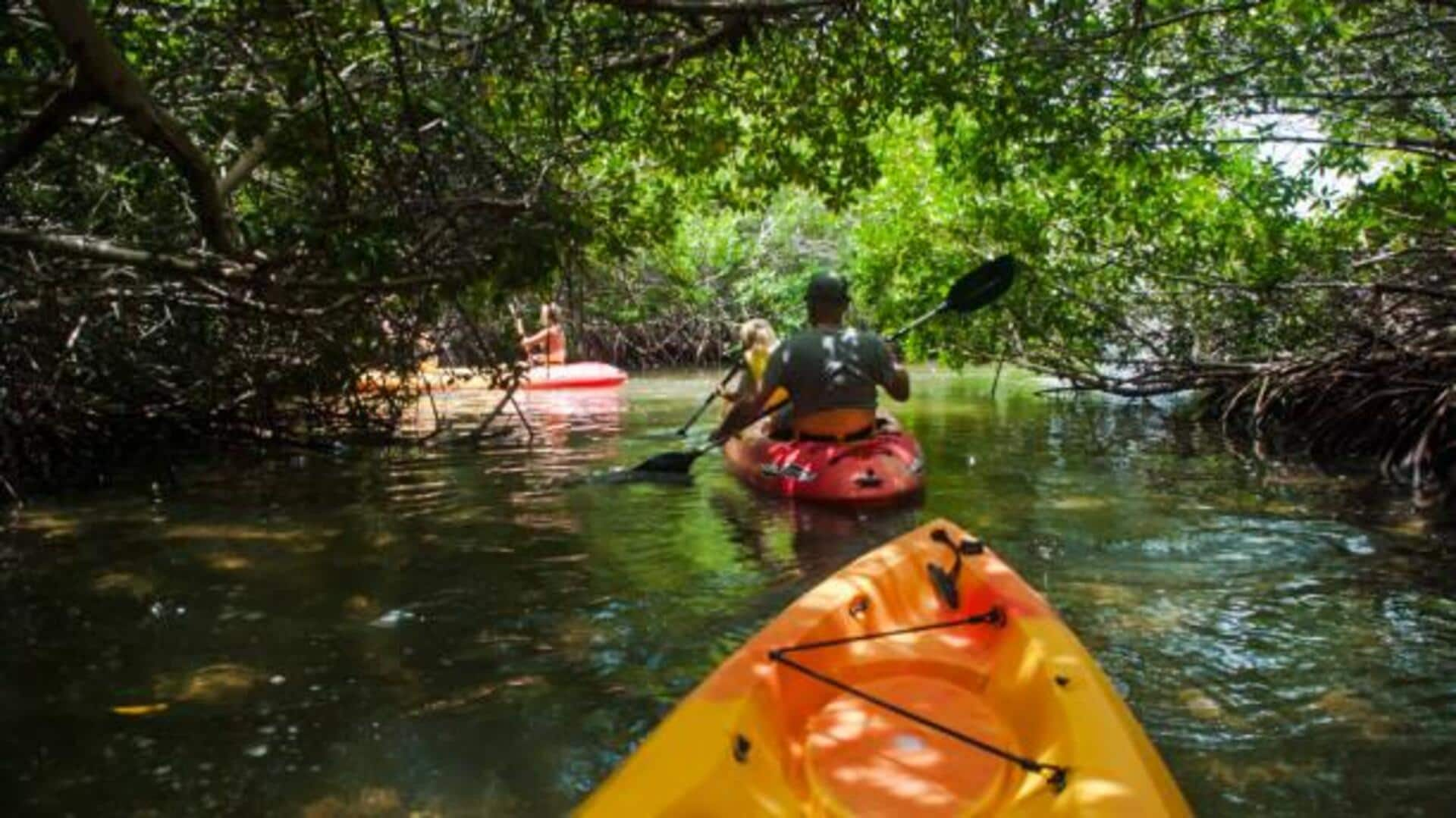
Kayaking through mangroves: What to know
What's the story
Exploring Africa's hidden mangrove forests by kayak is a unique way to experience the continent's diverse ecosystems. These serene waterways offer a peaceful escape from bustling cities, letting adventurers immerse themselves in nature. Paddling through these lush environments reveals an array of wildlife and plant species, making it an ideal activity for nature enthusiasts. Here are some of the best locations and tips for kayaking through Africa's mangrove forests.
#1
Discovering Senegal's Saloum Delta
The Saloum Delta in Senegal is a hot spot for kayaking through mangroves. This UNESCO World Heritage site boasts a web of waterways winding through thick mangrove forests. Kayakers can spot different bird species (like pelicans and flamingos) and even fish swimming under their kayaks. The tranquil waters make it perfect for both novices and experienced paddlers.
#2
Exploring Gambia River mangroves
The Gambia River presents another amazing opportunity to explore mangrove forests on a kayak. While you paddle through the river, you will be greeted by rich biodiversity- from monkeys swinging on trees to colorful butterflies fluttering around. The river is pretty gentle, ensuring a relaxing experience while letting you soak in the surrounding beauty at your own pace.
#3
Navigating Mozambique's Quirimbas Archipelago
Mozambique's Quirimbas Archipelago is perfect for kayaking. The clear waters give you a view of vibrant marine life and beautiful islands. Kayakers can roam around on secluded beaches, enjoying the peace of this remote paradise. The mind-blowing mangrove ecosystems of the area make it even better, and you would love it if you are a nature lover looking for some serene adventures.
Tip 1
Tips for safe kayaking adventures
When planning a kayaking trip through Africa's mangroves, safety should be paramount. Always wear a life jacket and ensure your kayak is fitted with necessary safety gear like whistles or flares in case of emergencies. It is advisable to check weather conditions before setting out and avoid venturing too far from shore without proper guidance or experience.